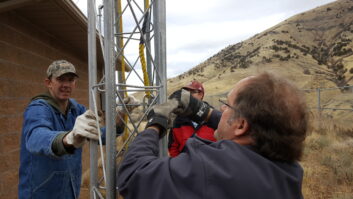Reaction is still arriving for the low-power FM rules and FM translator processing guidelines the FCC recently voted on.
Today, the agency released the text of its decision.
Conexus principal Leo Ashcraft, a broadcast consulting engineer, was disappointed the agency has decided to eliminate the LP10 watt class of low-power stations.
“The FCC cited lack of interest previously, though a simple look at Internet forums on the topic would show otherwise.”
Many LPFM advocates including Conexus agree there is a noise floor issue, especially in metro areas where these LP10 stations would most likely be established, according to Ashcraft. “However an upgraded version of the LP10 class was proposed by Recnet and quickly supported by The Amherst Alliance, Conexus and others in the LPFM community. The new service ‘LP50’ (1–49 watts) would allow a compromise for those desiring a lower power version of LPFM.”
As the two people who first proposed LPFM to the FCC, Don Schellhardt and Nick Leggett were pleased that the FCC will allow LPFMs to apply for a waiver and locate a new station on a second-adjacent channel more routinely.
They do note that broadcasters still need LP250 stations in rural areas, small towns and perhaps small cities — while LPFM broadcasters have an urgent and desperate need for stations below 50 watts in highly urban areas. The commission didn’t act on the LP250 proposal, saying there wasn’t enough data to do so yet.
Schellhardt and Leggett also support an LP50 option. “If there is no LP50 option, we will see few new LPFM stations in cities like Los Angeles and San Francisco. We will see no new LPFM stations at all in New York City and Detroit,” according to Schellhardt and Leggett.
Schellhardt plans to file a petition for reconsideration on the LP50 issue, saying the clock is ticking for LP50s as urban spectrum fills up.






